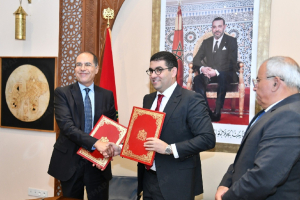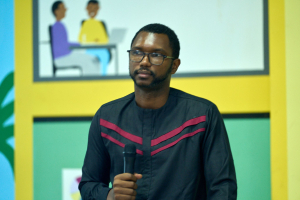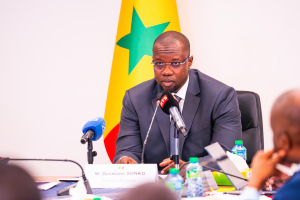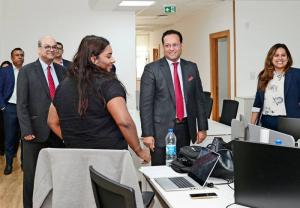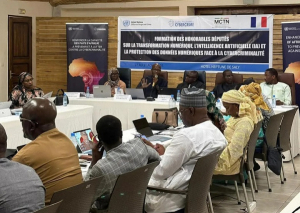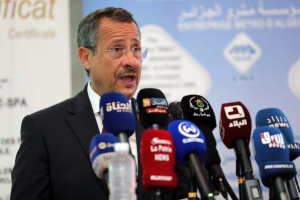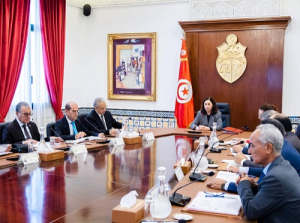Egypt Unveils 2025-2029 Digital Health Strategy to Modernize Care System
-
Plan includes national health data system, online services, and AI tools
-
Aims to ease system strain, but rural gaps and training remain key hurdles
Amid rising demographic pressure and growing strains on its healthcare system, Egypt is accelerating its digital transformation with a new national roadmap for the health sector. The country aims to leverage digital technologies to modernize management, expand access, and improve service efficiency.
Egypt officially unveiled its National Digital Health Strategy 2025-2029 on Saturday, November 15. Presented by Minister of Health and Population Khaled Abdel Ghaffar during the 3rd World Congress on Population, Health and Development (PHDC’25), the roadmap sets the foundation for a fully digitized health system by 2029.
A core element of the strategy is the creation of an integrated digital ecosystem intended to modernize health services through the systematic use of information technology. Key measures include consolidating national health data, building secure and interoperable digital platforms and expanding access to online services to improve the speed and reliability of patient monitoring.
The initiative falls under the broader “Digital Egypt 2030” transformation strategy, which places health among its priority areas. Implementation is supported by favorable conditions: the ICT sector is one of the fastest-growing in the Egyptian economy, and internet penetration exceeds 80%, according to DataReportal. Still, persistent disparities between urban and rural areas could slow the rollout of e-health solutions.
Several previous initiatives show that Egypt has already begun laying the groundwork for this transition. Millions of electronic medical records have been created under the universal health insurance program, while new platforms for telemedicine, hospital automation, and AI-assisted medical analysis continue to emerge.
For the government, the objective is twofold: to improve the efficiency of an overburdened healthcare system where bureaucratic bottlenecks and barriers to care remain widespread, and to strengthen national resilience against health crises, a priority underscored by the COVID-19 pandemic, which exposed the limits of traditional systems.
Implementing the strategy will require overcoming several challenges. Training health professionals to use new digital tools remains essential, as does strengthening cybersecurity to protect sensitive data. Expanding connectivity in underserved regions will also be critical to ensuring equitable access to digital health services.
Samira Njoya
Morocco Unveils Gamification Lab to Strengthen Its Position in Africa’s Gaming Market
-
Morocco launches Gamification Lab to support gaming start-ups and innovation
-
Initiative targets public-sector adoption in education, health, and tourism
-
Part of broader push to grow creative economy, now with 40 gaming start-ups
Morocco’s Ministry of Youth, Culture and Communication has partnered with the state-owned Caisse de dépôt et de gestion (CDG) and its investment arm, CDG Invest, to launch the “Gamification Lab” program. The agreement, signed in Rabat on Thursday, November 13, aims to boost local development and strengthen Morocco’s position in the fast-growing video game market.
The Gamification Lab will create a national platform to promote and facilitate the adoption of gamification solutions developed by Moroccan start-ups. These tools will be made available to public- and private-sector organizations active in education, health, culture, employment, and tourism.
Minister of Youth, Culture and Communication Mohamed Mehdi Bensaid said the initiative is part of a broader effort to support small cultural businesses, particularly those involved in video gaming. He noted the sector’s rapid expansion, pointing out that Morocco now counts around 40 gaming start-ups, compared with just two or three in 2021.
This new agreement follows recent efforts to organize and develop the gaming ecosystem. Last May, two agreements were signed to strengthen professional training in gaming-related careers. One introduced dedicated university programs in video game development, while the other created three vocational pathways: e-sport caster, e-sport streamer, and video game laboratory technician.
The announcement comes at a time when Africa’s gaming market is experiencing strong momentum. According to a report released in February by the African publisher Carry1st and research firm Newzoo, the sector generated 1.8 billion dollars in 2024, up 12.4 percent from 2023. By comparison, the global market grew by only 2.1 percent.
Through this partnership, Moroccan authorities aim to support content creation, strengthen the broader start-up ecosystem, and develop skilled employment. Their goal is to position Morocco as one of Africa’s emerging hubs in the creative and digital economy.
Samira Njoya
Senegal’s Tanoor Dieng Enhances Corporate Transaction Oversight with Juboo
-
Founded in 2023, Juboo automates financial reconciliation across banks, mobile money, and accounting systems.
-
The AI-powered platform uses OCR and machine learning to detect and match transactions from multiple data sources.
-
Co-founder Tanoor Dieng also leads Baamtu Technologies, a Senegalese firm specializing in AI and enterprise software.
Senegalese entrepreneur Tanoor Dieng is addressing a critical yet often overlooked aspect of business finance—data reconciliation. His company Juboo provides an automated platform that enhances transparency in financial operations and strengthens corporate financial management.
Dieng, a trained computer scientist, co-founded Juboo in 2023 and serves as its Chief Executive Officer. The platform enables companies to maintain control over their financial flows by automatically reconciling data from multiple sources, including banks, mobile money operators, and accounting ledgers.
Juboo uses artificial intelligence to extract and compare transaction data from PDF files, bank statement images, and accounting logs. Through optical character recognition (OCR) and computer vision, the platform processes and matches records without manual input.
The system’s machine learning algorithms can identify discrepancies and associate corresponding transactions even when identifiers differ across systems, ensuring consistency and reliability in financial reporting.
Juboo integrates with various financial partners and adapts to each company’s technological setup. Its core users include finance, accounting, and operations departments that handle multichannel transaction flows and require accurate reconciliations between internal systems, banks, and payment providers.
By automating these tasks, the platform reduces human error, saves time, and provides real-time visibility into financial discrepancies—benefits increasingly valuable to African businesses managing diverse payment ecosystems.
Beyond Juboo, Tanoor Dieng serves as Co-founder and Product Director at Baamtu Technologies, a Senegal-based firm specializing in information systems, data science, and artificial intelligence.
Founded in 2008, Baamtu supports organizations in deploying enterprise resource planning (ERP) software and executing digital transformation initiatives across multiple sectors.
Dieng’s career reflects a consistent commitment to building African technology solutions that improve operational efficiency and promote digital sovereignty.
Dieng earned a master’s degree in computer science from the University of Caen Normandy in 2003 and obtained a postgraduate degree in algorithmics and artificial intelligence in 2004. His expertise in AI has guided his mission to leverage automation for financial and business process optimization in Africa.
This article was initially published in French by Melchior Koba
Adapted in English by Ange Jason Quenum
Senegal Bets on Digital Overhaul to Revive State Postal Operator
- Senegal launches digital plan to revive La Poste.
- Postal bank, e-commerce, fintech upgrades key pillars.
- Africa’s e-commerce seen doubling to $113B by 2029.
Senegal is pushing a sweeping digital transformation of its state-owned postal company in a bid to restore its relevance and position it at the center of the country’s e-commerce and financial inclusion drive.
The government unveiled the plan on Sept. 1 under the leadership of Prime Minister Ousmane Sonko, highlighting technology as the core lever to modernize postal, financial, and logistics services while expanding access to digital tools for citizens.
The strategy includes rolling out a national certified e-mail service to provide secure official addresses, overhauling Postefinances to improve banking access and transaction reliability, and establishing a postal bank—open to private capital by 2029—to expand digital financial services.
La Poste also plans to partner with small businesses and startups to strengthen delivery services and facilitate cross-border e-commerce, tapping into Africa’s fast-growing online trade. Cooperation with SENUM SA, the state’s digital implementation agency, is expected to accelerate the adoption of new technologies.
The initiative comes as private couriers and fintech players expand rapidly in a region where postal services have lagged technologically. Africa’s e-commerce market is projected to double to $113 billion by 2029 from $55 billion today, according to TechCabal Insights, driven by mobile commerce, super apps, and the African Continental Free Trade Area’s new e-commerce protocol.
Senegal’s plan aims not only to boost trade flows and restore public trust in the postal system, but also to generate skilled jobs and support broader economic growth. Its success will hinge on execution, stakeholder buy-in, and the ability to adapt to Africa’s evolving digital landscape.
This article was initially published in French by Samira Njoya
Adapted in English by Ange Jason Quenum
Mauritius Establishes Inter-Ministerial Committee to Drive Digital Strategy
- Mauritius launches inter-ministerial committee to coordinate national digital transformation strategy.
- Committee focuses on digitizing schools, public alerts, social benefits, and protecting vulnerable users.
- Island nation ranks highly in e-governance, AI readiness, and digital infrastructure in Africa.
The Mauritian government has established an inter-ministerial committee to coordinate the implementation of its national digital strategy, unveiled in May 2025. The inaugural meeting of this new body took place on August 26 in Ébène, chaired by the Ministry of Information Technology, Communication and Innovation (MITCI).
The committee will serve as a single point of contact to ensure coherence across various ministries involved in the digital transformation. Discussions at the meeting focused on several priority areas, including the digitization of schools, the establishment of a national public alert system, the development of a platform for managing social benefits, and reducing delays in public service delivery. Authorities also emphasized the critical need to protect vulnerable populations from online abuses.
This initiative aims to accelerate the modernization of Mauritian administration and strengthen the state's capacity to offer more efficient and inclusive services. It comes as African nations increasingly adopt e-governance programs to enhance public service quality and support their broader digital transformation efforts.
Mauritius has consistently demonstrated strong performance in digital development. In 2024, the Republic of Mauritius ranked 76th globally for its online administration development, placing it at the forefront in East Africa, according to the United Nations Department of Social Affairs. The island nation also secured the 69th position globally and 2nd in Africa for its AI readiness, surpassing South Africa and Morocco, as reported by UK-based consultancy Oxford Insights. Furthermore, the International Telecommunication Union (ITU) positions Mauritius as the 3rd in Africa for its digital infrastructure development.
Should these projects progress as planned, the island nation is poised to further solidify its position in digital governance. This momentum is also expected to bolster citizen confidence in digital administration.
This article was initially published in French by Adoni Conrad Quenum
Adapted in English by Ange Jason Quenum
Senegal Trains Lawmakers in Digital Transformation
- Senegal launches 'New Deal Technologique' to digitize public services, including parliamentary operations.
- Lawmakers receive training in AI, cybersecurity; electronic voting system adopted for real-time suffrage.
- Despite progress, African parliaments lag in digital maturity, highlighting need for continued investment.
Senegal is accelerating its national digital transformation strategy, dubbed the "New Deal Technologique," launched in February. This initiative aims to enhance the efficiency of public services through widespread digitization, with a particular focus on the legislative branch.
In a collaborative effort, the Senegalese government, the National Assembly, and the United Nations Office on Drugs and Crime (UNODC) recently concluded a five-day digital training workshop for members of parliament. This program is part of broader actions designed to fast-track the digital evolution of the parliamentary institution.
The strategic workshop focused on equipping lawmakers with essential skills in digital transformation, artificial intelligence (AI), personal data protection, and cybersecurity. The objective is to empower them to guide the nation towards digital sovereignty by crafting public policies and legislation that address contemporary challenges, aligning with the "New Deal Technologique" framework.
Significant strides have already been made. In December 2024, the National Assembly implemented an electronic voting system, featuring a platform capable of recording votes in real-time. El Malick Ndiaye, President of the National Assembly, has prioritized the digitization of parliamentary services. The modernization plan also includes the development of an interactive institutional website for b
oth deputies and citizens, alongside the launch of a parliamentary television channel. A dedicated project team has been established to oversee this transformation.
Further demonstrating this commitment, President Ndiaye met with a delegation including executives from the technology company Airudi in May to explore potential collaborations in AI, digital transformation, and professional training. These efforts unfold within a context of profound technological shifts in parliaments globally, driven by demands for greater efficiency, transparency, and citizen participation, as highlighted by the Inter-Parliamentary Union (IPU) in its 2024 World e-Parliament Report.
"Traditional siloed systems are giving way to more integrated and intelligent cloud-based solutions. AI, machine learning, and natural language processing are revolutionizing everything from document management to cybersecurity. These technologies enable parliaments to automate routine tasks, better analyze data, and offer more responsive services to parliamentarians, staff, and citizens," the IPU report, published in October 2024, states.
However, the digital transformation process within the Senegalese Parliament remains in its nascent stages. According to the IPU, the most digitally advanced African parliaments include South Africa, Zimbabwe, Burundi, Morocco, and Mauritius, followed by Tunisia and Malawi. The report indicates that Sub-Saharan Africa remains largely underrepresented among top-performing parliaments, with 50% of its institutions ranked among the 30 least advanced in terms of digital maturity.
This disparity is primarily attributed to a lack of modernization initiatives, insufficient investment in digital systems, and the absence of ambitious digital transformation programs.
This article was initially published in French by Isaac K. Kassouwi
Adapted in English by Ange Jason Quenum
Cameroon: Virginie Pouna Ngomi Uses Tech to Bring Insurance to the Masses
Virginie Pouna Ngomi focuses on helping African families protect their health and belongings without complicated paperwork. She studies local needs and creates tailored insurance tools that fit African realities.
As a Cameroonian actuary and entrepreneur, Virginie launched COVA Africa in 2021. She serves as its CEO. The startup builds digital solutions that break down barriers to insurance for low-income households across Africa.
COVA Africa uses an "as-a-service" distribution model. It launched a platform that embeds insurance products into offers from merchants, mobile apps, fintech firms, and microfinance institutions. This approach makes buying insurance simple and seamless for everyday people.
The company cooperates closely with local partners. It designs products covering health, life, accidents, funerals, property, and agriculture. It also links micro-insurance to daily purchases like travel, subscriptions, and gadgets. Loyalty programs further encourage adoption. To ensure reliability, COVA Africa works with insurers in Africa and France.
Recognition followed quickly. In 2023, COVA Africa won the sixth CATAPULT Financial Inclusion Africa Program, organized by Luxembourg’s House of Financial Technology. This year, the startup joined BimaLab Africa, a pan-African insurance accelerator.
Virginie’s education laid a strong foundation. She earned a DEUG in applied mathematics in 2005 from Faculté des sciences Semlalia in Marrakech, Morocco. She completed a Master’s in Innovation Science and Risk Management that same year at Pierre and Marie Curie University in France. Additionally, she holds an actuarial engineering degree from the Institute of Statistics at the University of Paris.
Her career began in 2008 with internships at AXA Liabilities Managers and Allianz France. She then became a junior actuary at ALTIA, an insurance consulting firm, in 2010. By 2011, she advanced to senior actuarial analyst at PwC, a leader in audit, insurance, taxation, and legal services.
Between 2014 and 2021, Virginie sharpened her skills at Activa Assurances Group. There, she held diverse roles: actuary, deputy director, innovation director, and retail director.
Melchior Koba
Algeria Taps Digital Technology to Streamline Public Project Management
-
Algeria plans a digital portal and centralized system to monitor public infrastructure projects nationwide.
-
The system will track real-time progress, detect delays and cost overruns, and enhance transparency.
-
Authorities aim to improve public investment performance and tighten control over budgets through digital tools.
Algeria moves to modernize its public works sector by adopting digital technology to boost project management. The Ministry of Public Works and Basic Infrastructure announced plans on July 19 in Algiers to launch a digital portal and centralized system for overseeing infrastructure projects across the country.
Minister Lakhdar Rekhroukh said the system will serve as a real-time dashboard to aid quick decision-making and raise implementation efficiency. He explained that the platform will monitor every project phase at both central and local levels, providing an instant snapshot of work progress.
The two digital tools will help stakeholders spot delays and cost overruns promptly while delivering actionable data to administrators, project engineers, financial controllers, and local officials. This access aims to make project management more efficient and transparent.
This digital move fits a broader government effort to digitize public procurement in Algeria. The infrastructure sector faces issues like chronic delays, unexpected cost hikes, and opaque monitoring—factors that hinder public investment and strain state finances.
Developed by the French Treasury’s National Equipment Fund for Development(CNED), the platform combines performance indicators and automated reports. It links spending directly to actual progress on project sites.
By centralizing and updating information instantly, the system will improve cost control, help meet deadlines, and boost transparency in public fund usage. Officials expect it to lay foundations for stronger investment governance and higher quality infrastructure delivery.
This article was initially published in French by Samira Njoya
Edited in English by Ange Jason Quenum
With Tech, Ivorian Entrepreneur Lamine Barro Equips African Youth for the Future
Lamine Barro, a young Ivorian entrepreneur, is using technology to transform how African youth learn and work. Through his startup Etudesk, he blends data, accessibility, and digital tools to build skills and drive digital transformation across West Africa.
Barro, founder and CEO of Etudesk, launched the company in 2016. Since then, it has grown into a key player in the digital education sector, supporting both public services and private organisations with data-driven solutions.
Etudesk offers a platform that centralises and updates socio-economic and urban data in real time. Governments, investors, and businesses use it to make informed decisions and better understand local dynamics. But the company’s impact goes further—especially in the fields of education and employment.
One of its flagship tools is Etudesk LMS, a learning management system designed to boost the skills of African talent. The platform lets users create, manage, and distribute educational content. Organisations and companies can build training programs that combine videos, quizzes, documents, and assessments.
In March 2025, Etudesk launched a custom data platform for Côte d'Ivoire's Agence Emploi Jeunes (AEJ). The system integrates AI-driven diagnostics that assess each user’s profile, skills, and goals to offer personalised recommendations—a tool aimed at matching youth with job opportunities that fit their aspirations.
Beyond Etudesk, Barro plays a wider role in the Ivorian tech ecosystem. He is co-founder and vice-president of #Ci20 (Côte d'Ivoire Innovation 20), a coalition of leading technology firms. He also serves on the scientific council of Mission Laïque Française, a French-based non-profit that operates schools around the world.
Before entering tech, Barro studied biology. He earned his bachelor’s degree from the Université Péléforo Gon Coulibaly in Korhogo in 2015.
This article was initially published in French by Melchior Koba
Edited in English by Ange Jason Quenum
Tunisia Upgrades e-People Platform to Boost Citizen-Government Dialogue
-
Tunisia updated its e-People digital platform with support from South Korea.
-
The new system improves transparency and citizen access to public services.
-
Tunisia ranks above the global average in the UN’s 2024 e-government index.
Tunisia has upgraded its digital platform e-People Tunisia to improve communication between citizens and the state. The government launched this new version as part of a cooperation agreement with South Korea’s KOICA, signed in February 2025.
Authorities first introduced e-People Tunisia in 2018. The 2025 upgrade makes it easier for citizens to file complaints, send suggestions, and report corruption directly to government ministries and public offices. Users can log in, choose a department, send a message, and track the response through a built-in notification system.
The platform’s new features aim to boost transparency. Public officials can now process requests more efficiently and reach citizens across more digital channels.
Tunisia’s digital reforms are part of a broader strategy to modernize the state. The government says it wants to bring services closer to the people and make administration more responsive. Users can also access public data and provide feedback to authorities.
Tunisia has earned international praise for its progress in e-governance. In 2024, the United Nations ranked the country above the global average in its E-Government Development Index (EGDI), with a score of 0.6935 versus a global average of 0.6382.
With this upgrade, e-People Tunisia strengthens citizen participation and reinforces trust in public institutions. Authorities believe the platform can play a central role in shaping a more connected, transparent, and accountable government.
By Adoni Conrad Quenum
Edited in English by Ange Jason Quenum



